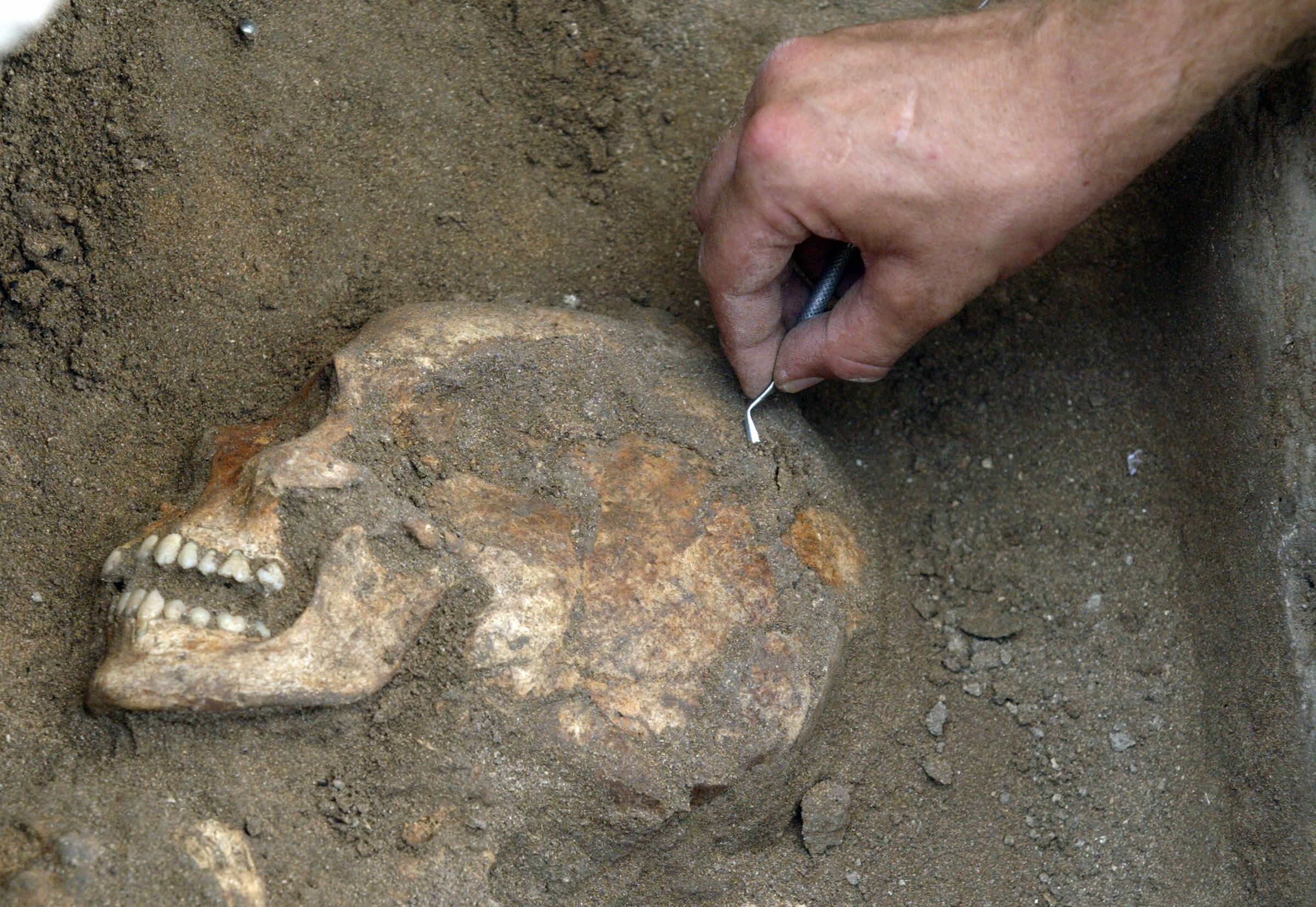
A standard excavation took a disturbing turn when workers uncovered the dismembered remains of three men, likely over 1,500 years old, ahead of a road project in England.
Archaeologists discovered two bodies with amputated legs and bashed skulls and another skeleton severed at the waist in a Roman well just over 150 feet away. The men probably lived near the end of the Roman Britain era from 42 to 410 AD when emperor Claudius invaded the country, senior archaeologist Kasia Gdaniec told the Guardian in a story published Monday.
The legless men were placed carefully by their shoulders, the archaeologists said, with their heads turned away from each other. One of the skeleton's teeth and bones remained intact, so the team hopes to test the remains to uncover their age and clues to their violent burial.
"People talk about the archaeology of conquest, but I have never felt it as strongly as here. The Romans arrive, the people who were here are completely subjugated, everything changes and is never the same again," Gdaniec said. "We are not seeing trade and peaceful coexistence here; we are seeing enslavement."
The excavation team didn't find evidence of permanent Roman structures in the area, so they believe the conquerors set up camp there on the way toward Hadrian's Wall, a 70-mile barrier to protect Roman-ruled Britain from Scottish "barbarians."
The Romans often publicly mutilated and executed deserters, slaves who attempted to escape and Christians who refused to worship Roman gods. Debtors who owed several creditors were often "cut into pieces by them in proportion to their shares," according to a 1922 paper archived by Johns Hopkins University.
A 2016 British excavation uncovered seven decapitation burials with bodies often separated from their heads; one skull was even placed between the knees. Though research claims decapitation was sometimes considered a way to "ease entry" to the afterlife, the findings are more likely a window into the violence of the Roman empire, where unusual crime and punishment was standard well into the first few centuries AD.
Recent archaeological digs have revealed similarly gruesome findings: a skeleton crushed by a rock as he attempted to escape the eruption of Mount Vesuvius in Pompeii; the foot of a man with a hole through his heel, only the second skeleton to show evidence of crucifixion, and mass graves of soldiers killed in the Napoleonic War.
Uncommon Knowledge
Newsweek is committed to challenging conventional wisdom and finding connections in the search for common ground.
Newsweek is committed to challenging conventional wisdom and finding connections in the search for common ground.
About the writer
Scottie is a Newsweek science fellow and student at the University of Florida. Her work has appeared in Women's Health, the Gainesville ... Read more
To read how Newsweek uses AI as a newsroom tool, Click here.








